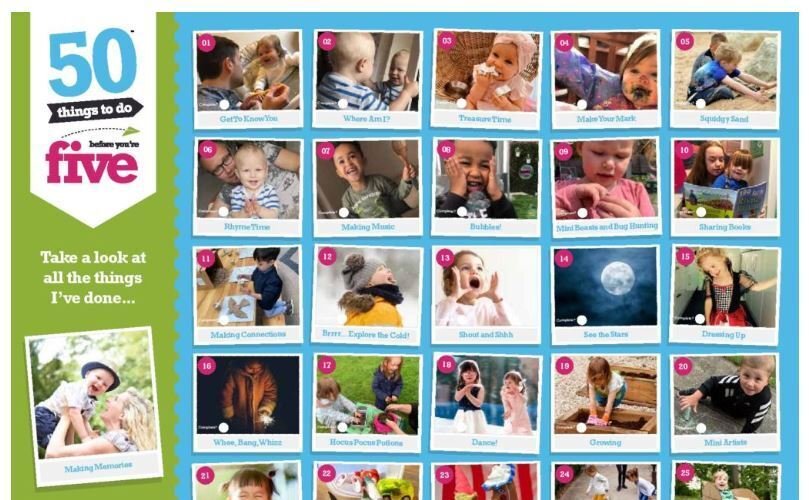Early years foundation stage (EYFS)
Our school curriculum begins in the early years. We are very proud of the teaching and provision we provide for our children. We feel strongly that each child is a unique learner and needs to grow and develop through forming positive relationships in an enabling environment. Therefore, we ensure we create high-quality teaching and learning environments, both indoors and outdoors, that are well-structured, purposeful, interesting and challenging and accessible for all our children.
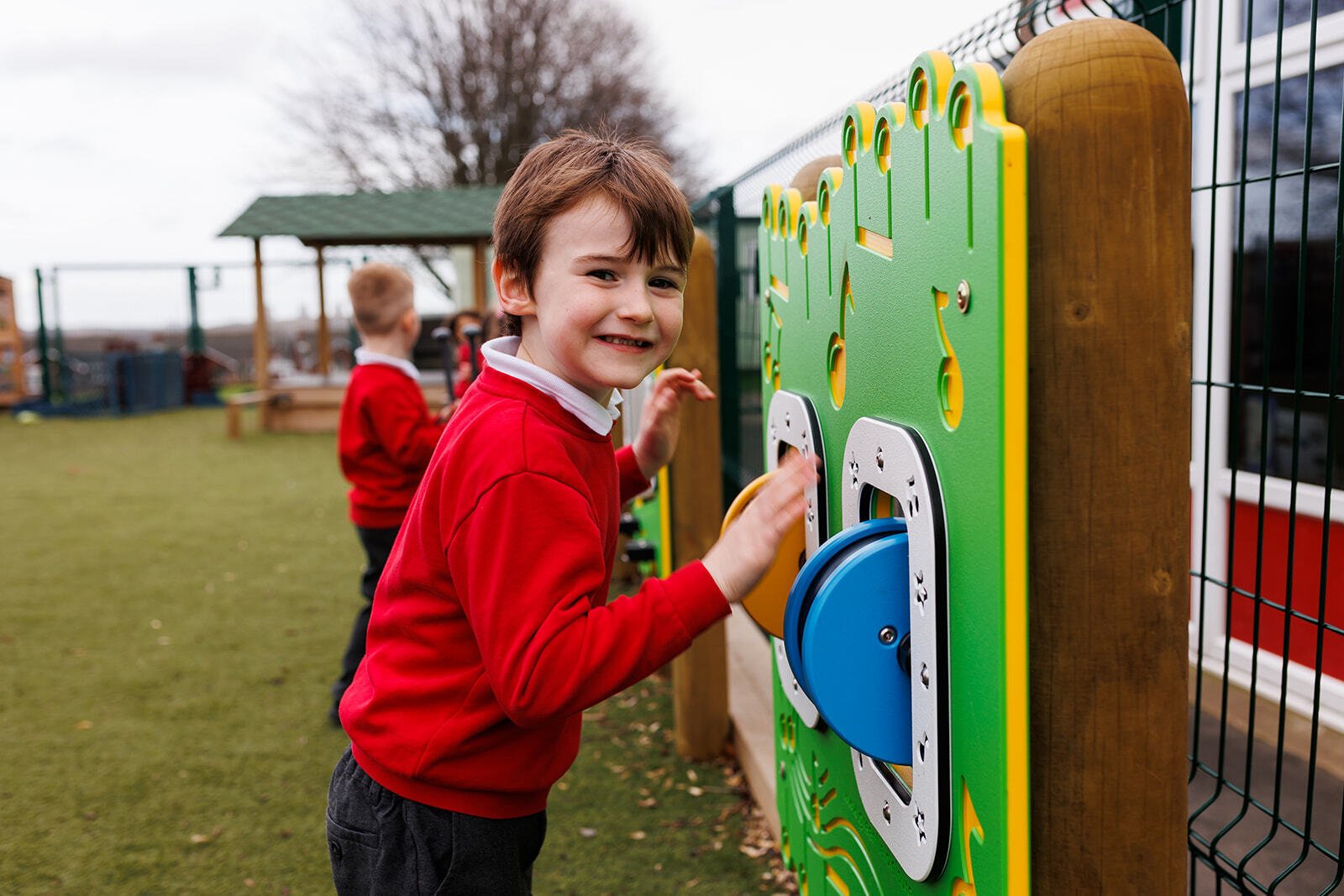 |
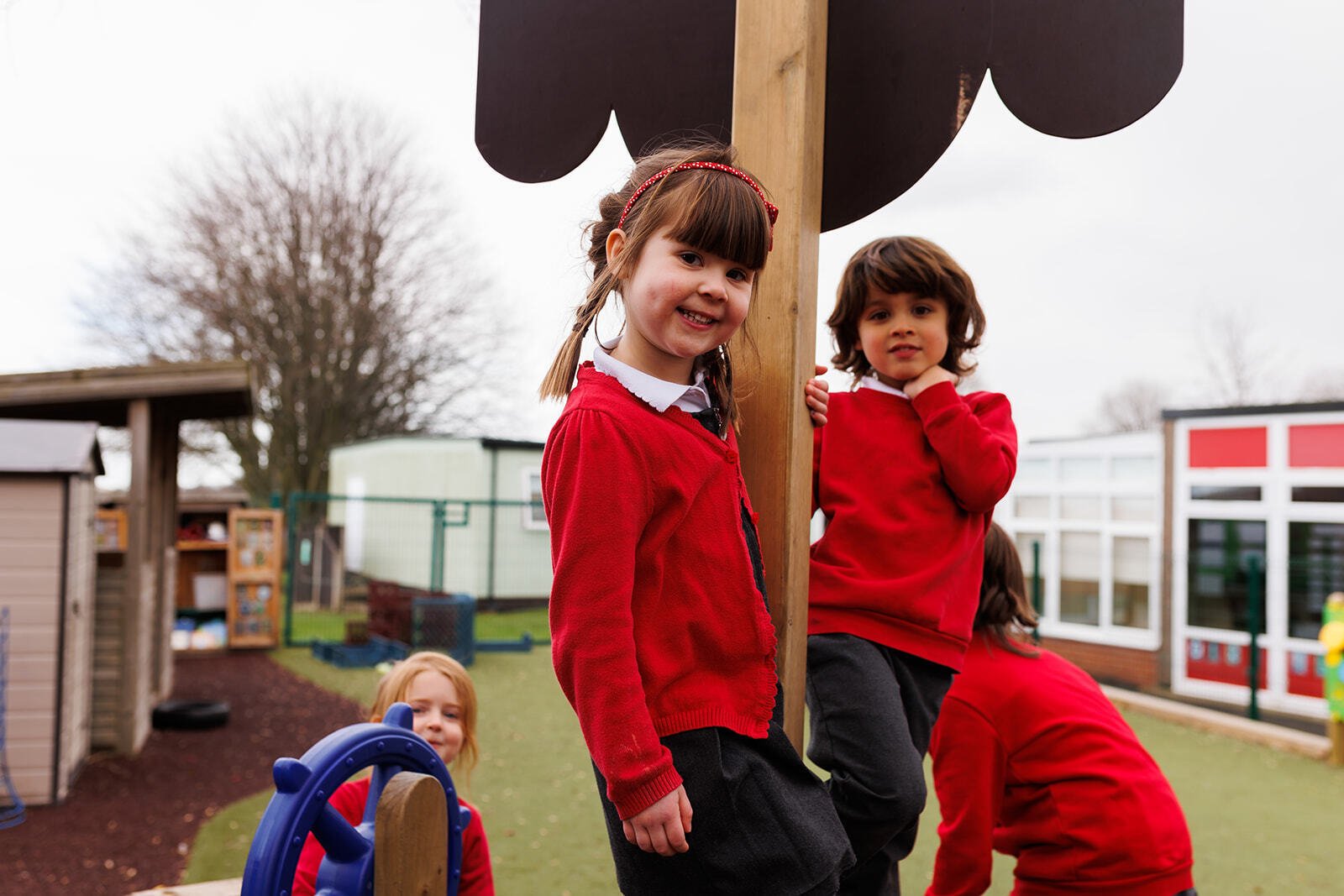 |
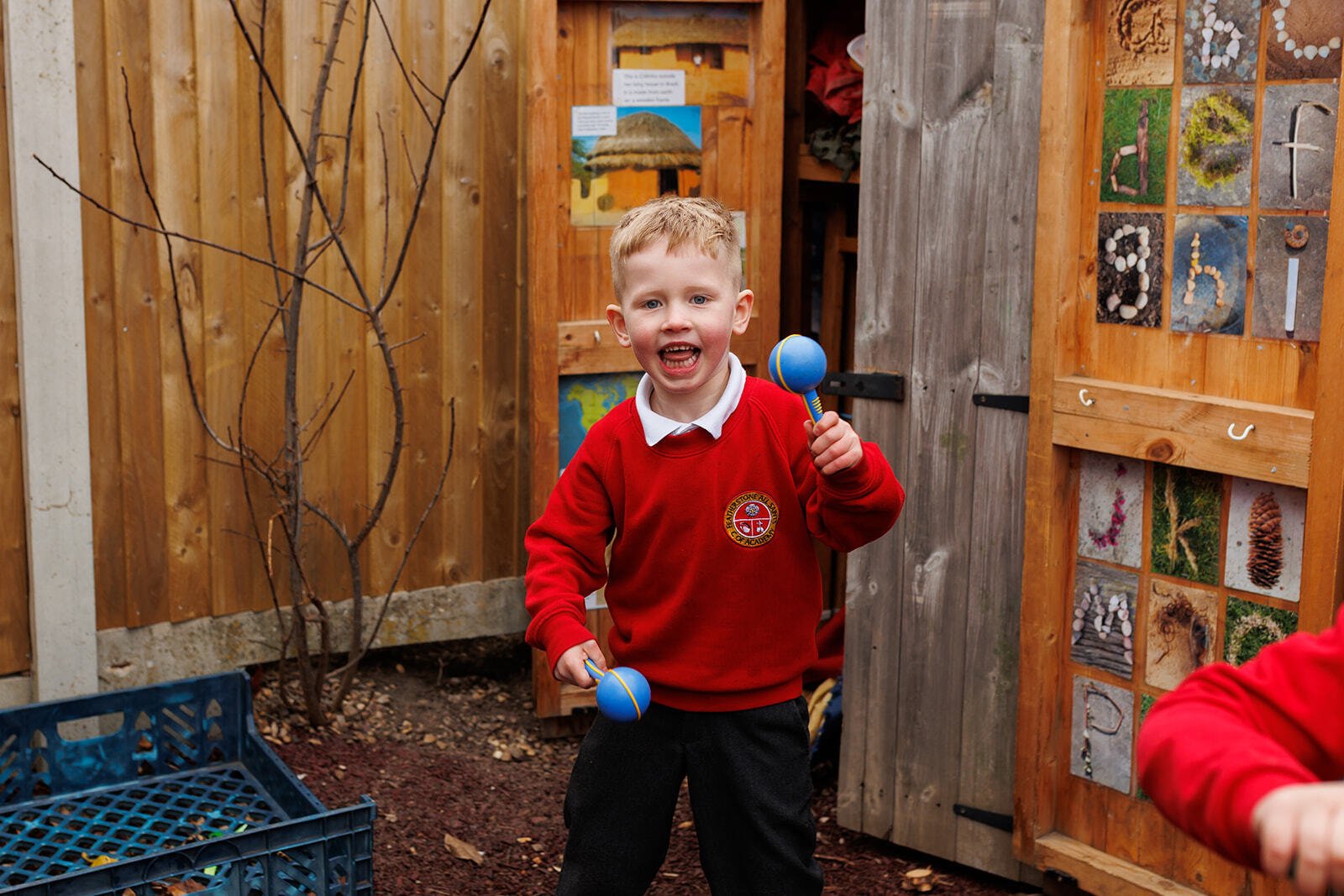 |
We have separate nursery and reception classes who share a stimulating and inviting outside area. Our nursery offers both morning and/or afternoon sessions and children are welcome to join us the term after they turn 3 years old. Most children tend to join our Nursery and move into our reception class however we do have some children who leave to join other settings and an additional few children that join us each year.
Having experienced and highly trained teachers and practitioners within our setting, brings insight and understanding to the delivery of the Early Years Foundation Stage Curriculum. We follow the EYFS statutory framework which aims to support children’s development and is split into seven areas of learning. The three prime areas are:
- Communication and language
- Physical development
- Personal, social and emotional development.
There are also four specific areas through which the prime areas are strengthened and applied:
- Literacy
- Mathematics
- Understanding the world
- Expressive arts and design.
These areas are underpinned by the characteristics of effective learning. These include playing and exploring, active learning, creating and thinking critically. The focus of the characteristics of effective learning is on how children learn rather than what they learn and we hope these will help the children develop attitudes that will last a lifetime.
Our learning environments provide rich opportunities for pupils to ask and answer questions, explore, find out things, cooperate and solve problems through a range of different play-based provision. Play based opportunities are provided through provision areas such as the sand, water, construction, small world, music, writing, maths, and many more. All areas outside reflect the EYFS framework but on a larger scale. Our learning environments allows children to access the curriculum in a safe and supported manner and reflect the current needs of the children, constantly adapting to ensure they meet their ever-changing needs.
We plan using a topic-based approach which provides opportunity for pupils to develop basic skills such as reading, writing, phonics, number recognition and counting, as well as allowing children to develop socially, morally, spiritually, culturally and emotionally as they form friendships and explore their feelings. Topics will be enhanced by the ideas and interests which pupils and staff bring to the learning environment.
Reading is at the heart of our curriculum and is evident in our daily storytelling, reading areas and visits to our school library. Staff have a love of reading and read with passion and enthusiasm to captivate children. We encourage and celebrate children who read at home. Phonics sessions take place daily and the application of reading and writing is encouraged in all areas of provision.
Maths is an important part of learning for children in our early years because it provides vital life skills. They will help children problem solve, measure and teach them how to use and understand shapes.
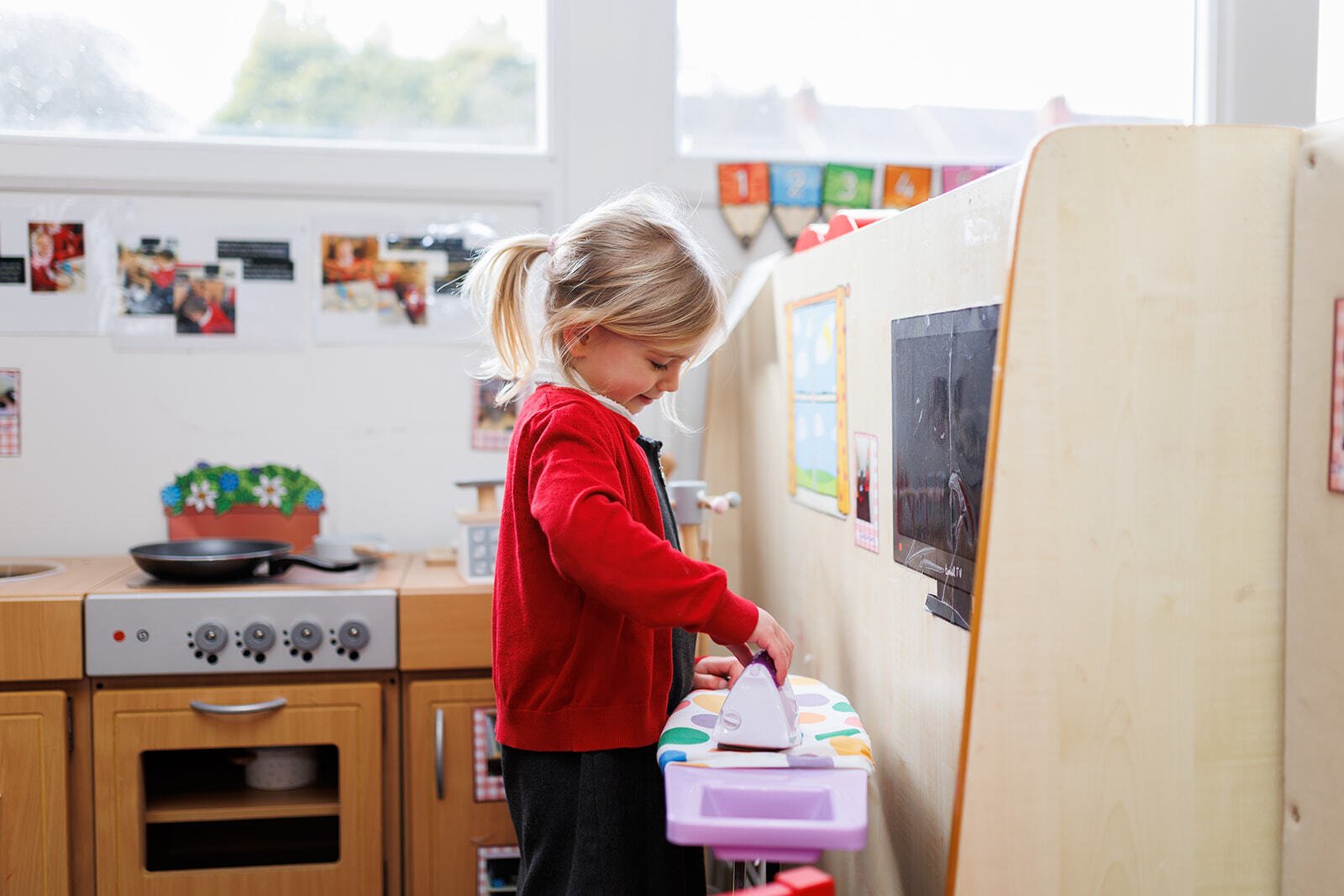 |
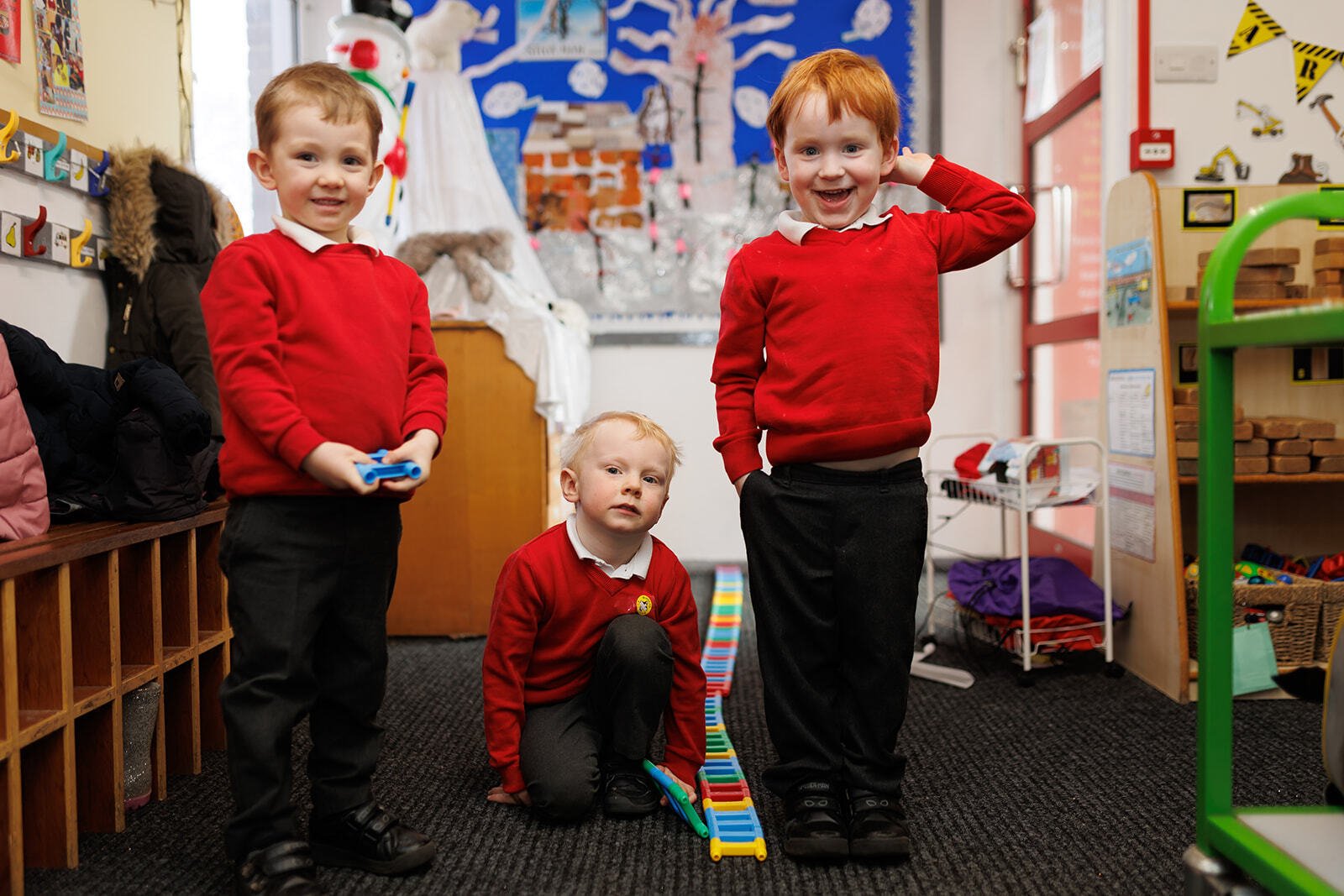 |
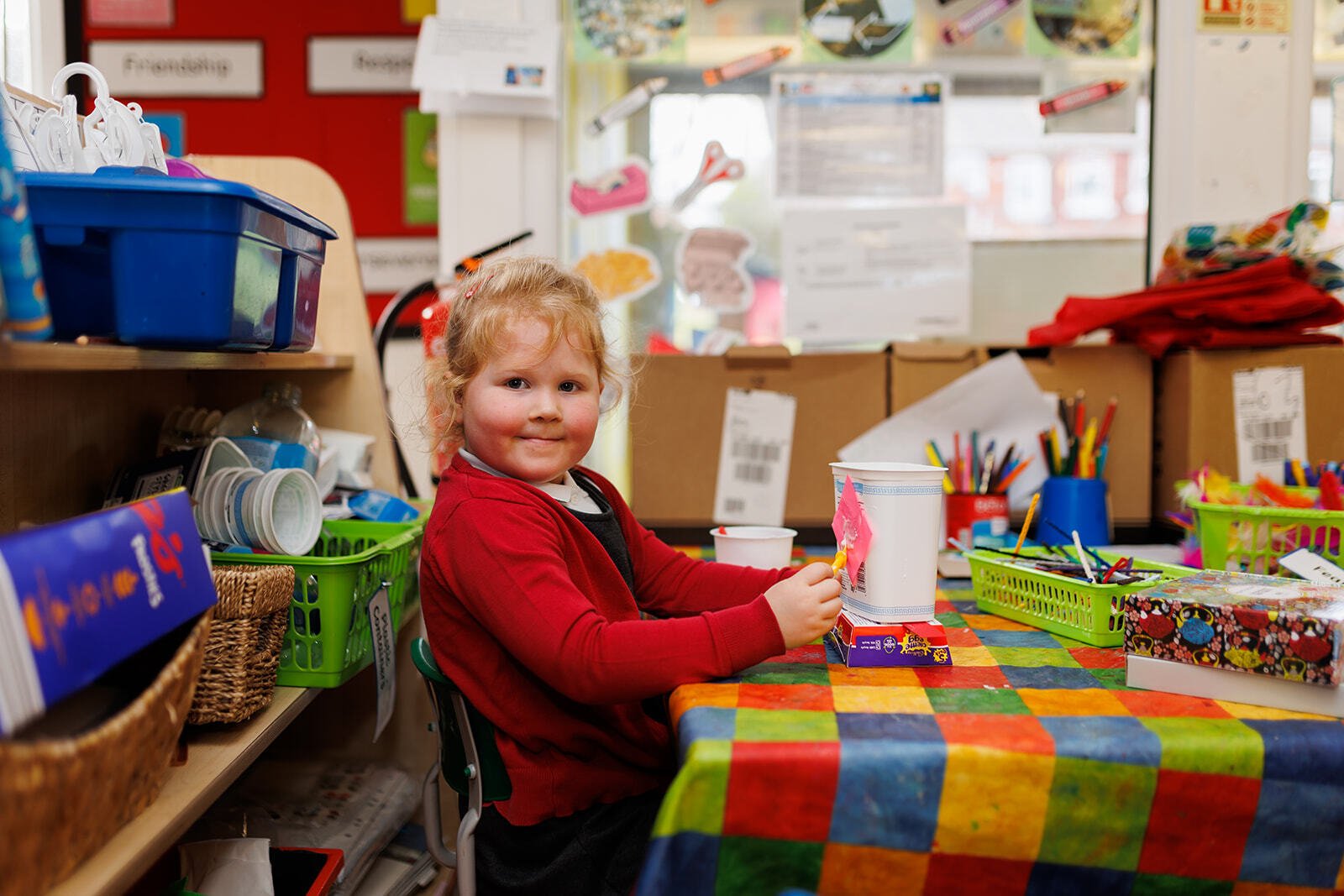 |
Learning through play is an important part of our Early Years classrooms. We believe children learn best from activities and experiences that interest and inspire them. Using children’s interests as a starting point, we provide children with stimulating, active play experiences in which they can explore and develop their learning to help them make sense of the world. They have opportunities through their play to think creatively and critically alongside other children as well as on their own. They are able to practise skills, build upon and revisit prior learning and experience at their own level and pace. Play gives our children the opportunity to pursue their own interests and inspire those around them. The children learn to adapt, negotiate, communicate, discuss, investigate and ask questions. We believe it is important that adults take an active role in child-initiated play through observing, modelling, facilitating and extending their play. Getting the balance right between child- initiated play, which is controlled, and adult led activities is very important to us.
Assessment is an essential part of the learning and development of children in the EYFS. It involves practitioners observing children to understand their level of achievement, interests and learning styles, and to then shape learning experiences for each child reflecting those observations. We use Class Dojo as a tool for recording ‘WOW’ moments as this allows us to share children’s learning experiences and progress with parents.
We build trusting and secure relationships with our children and parents and carers and try to keep them involved with their child’s learning as much as possible through school class Dojo system and regular parents evenings. Our staff care greatly about each child as an individual and the families with whom we work with. Parents are encouraged to inform us of their interests and achievements outside of school so we can celebrate and incorporate this into our curriculum.
50 things to do before you’re five
As a school we are a proud supporter and champion of Wakefield’s 50 things to do before you’re 5, as we strive for our children to have the best start in life.
50 things gives an exciting menu of exciting activities for families in Wakefield with young children, giving them great suggestions for how to have fun and learn at the same time.
https://wakefield.50thingstodo.org/app/os#!/welcome
Which ones have you tried?
Knowledge and skills progression (linked to the EYFS curriculum)
| Name | |
|---|---|
| Art Knowledge Skills Progression EYFS.pdf | Download |
| Computing Knowledge Skills Progression EYFS.pdf | Download |
| DT Knowledge Skills Progression EYFS.pdf | Download |
| Geography Knowledge Skills Progression EYFS.pdf | Download |
| History Knowledge Skills Progression EYFS.pdf | Download |
| Music Knowledge Skills Progression EYFS.pdf | Download |
| PE Knowledge Skills Progression EYFS.pdf | Download |
| PSHE Knowledge Skills Progression EYFS.pdf | Download |
| Reading Knowledge Skills Progression EYFS.pdf | Download |
| Science Knowledge Skills Progression EYFS.pdf | Download |









